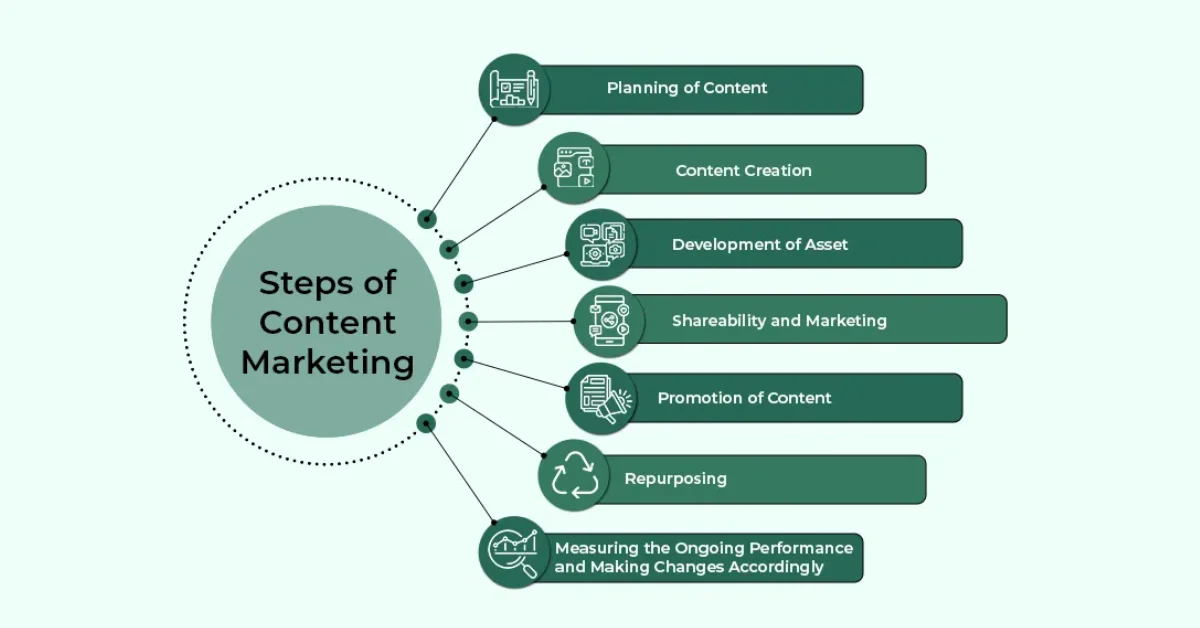Content marketing is changing quickly because technology and customer habits are shifting, and more brands compete online. As we move into 2025, several trends and strategies are shaping the future of content marketing.
Here’s what’s changing and how businesses can stay ahead and grow.
1. AI Tools Shaping Content Marketing
AI has already changed how content marketing works, and it’s set to grow even more in 2025. AI tools are getting smarter and faster. They help brands make content that people want, exactly when they need it. These advancements allow marketers to anticipate user needs in real-time, creating personalized experiences that feel organic and engaging.
AI is also facilitating the creation of interactive content without requiring complex development processes. For example, brands can use AI to generate dynamic quizzes, simulations, or augmented reality (AR) experiences that grab attention. Additionally, AI-powered tools are helping marketers streamline workflows by automating repetitive tasks such as data analysis and content repurposing.
2. Voice Search and Chat Marketing
Voice search technology is becoming mainstream as consumers increasingly rely on voice assistants like Alexa and Siri for information. This change means brands need to use simple, natural language and give clear answers to questions. Marketers must adapt their strategies to ensure their content is discoverable through voice search platforms.
Conversational marketing is another emerging trend, allowing brands to engage directly with users through chatbots or live messaging. These chats let brands talk directly to customers, boost satisfaction, and increase sales.
3. AR/VR Experiences for Brands
Augmented reality (AR) and virtual reality (VR) are revolutionizing how brands interact with consumers. AR and VR are becoming easier to use, letting brands show off products in fun, hands-on ways. For instance:
- A furniture brand might use AR to let customers visualize products in their homes.
- A travel company could offer VR tours of destinations.
These technologies provide unique ways to engage audiences while fostering deeper connections with brands.
4. The Rise of Zero-Click Searches
Zero-click searches—where users find answers directly on search engine results pages without clicking through to external websites—are becoming more prevalent. Approximately 58.5% of U.S.-based Google searches now fall into this category. To remain competitive, marketers must improve or adjust their content for featured snippets, AI overviews, and other formats that show up in search even when people don’t click on a link.
That’s why short, helpful answers matter more than ever.
5. Short Videos Are Taking Over
Short-form videos continue to dominate social media platforms like TikTok, Instagram Reels, and YouTube Shorts. These videos get attention fast because they’re short and fun to watch, making them ideal for capturing attention in crowded digital spaces. In 2025, brands must prioritize video production as part of their content strategy.
Key considerations include:
- Crafting compelling narratives within seconds.
- Using subtitles for accessibility.
- Leveraging trending audio or visual effects.
6. Personalization at Scale
Consumers increasingly expect personalized experiences tailored to their preferences and behaviors. Advances in AI and data analytics make it possible for marketers to deliver such experiences at scale. It’s more than just using someone’s name—personalization means showing the right stuff based on what people like or did before; it includes recommending relevant products or services based on past interactions and creating bespoke content journeys.
For example:
- E-commerce platforms can suggest items based on browsing history.
- Streaming services can curate playlists aligned with user tastes.
7. Stand Out with Unique Content
In an era where AI enables mass production of content, differentiation becomes crucial. Brands must focus on creating unique perspectives or sourcing original data to stand out from competitors. This approach involves moving beyond generic topics to share new ideas that AI can’t copy.
Strategies for building unique moats include:
- Conducting proprietary research.
- Collaborating with industry experts.
- Sharing authentic stories or case studies.
8. Building Trust with E-E-A-T

Google still cares a lot about expertise, experience, authority, and trust in 2025. Content marketers must ensure their materials demonstrate expertise in relevant fields while building trust through transparency and credibility.
Ways to enhance E-E-A-T include:
- Publishing well-researched articles supported by credible sources.
- Featuring testimonials or reviews from satisfied customers.
- Highlighting certifications or awards received by the brand.
9. Mixing Up Your Content Formats
To cater to diverse audience preferences, marketers must explore alternative formats such as podcasts, infographics, webinars, and interactive tools. Trying different content types helps you reach more people and keep them interested.
For example:
- Podcasts can provide in-depth discussions on niche topics.
- Infographics simplify complex information visually.
- Webinars offer opportunities for live interaction with experts.
10. Track What Matters
Traditional metrics like page views or impressions no longer suffice as indicators of success. In 2025, engagement-focused metrics such as time spent on page or click-through rates are gaining prominence. These metrics provide deeper ideas or tips into how users interact with content and whether it drives desired outcomes.
Marketers should track:
- Conversion rates from specific campaigns.
- Social media shares or comments indicating audience interest.
- Bounce rates signal potential issues with content relevance.
11. Inspiring Content That Leads
Some content isn’t just useful—it makes people excited about the future. Brands leveraging this strategy position themselves as thought leaders who shape industry conversations rather than merely reacting to trends.
Examples include:
- Sustainability brands share visions of a zero-waste future.
- Financial services are discussing decentralized finance’s societal impact.
Visionary content fosters loyalty by encouraging users to align themselves with the brand’s mission or values.
Conclusion
The future of content marketing lies in adaptability and innovation. As AI continues to reshape the landscape, marketers must embrace its capabilities while prioritizing authenticity and uniqueness. Strategies like optimizing for zero-click searches, leveraging short-form videos, diversifying formats, and creating visionary content will be essential for success in 2025.
By keeping up with these trends and focusing on what connects with people, brands can build lasting connections with their audiences while achieving measurable results in an always changing digital world.